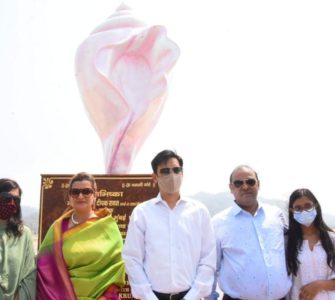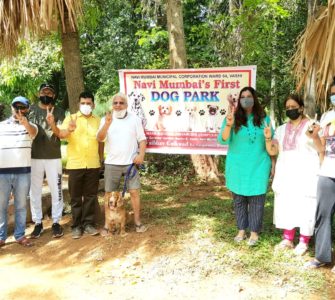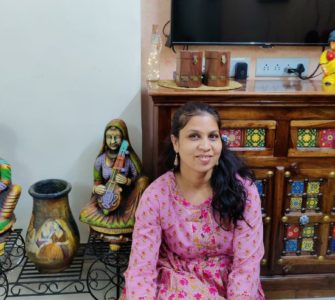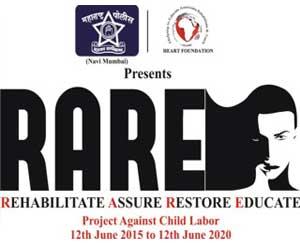“I want to awaken the passion and creativity of youth, combine it with the wisdom, experience and insight of elders, and transform our world.”- Ocean Robbins
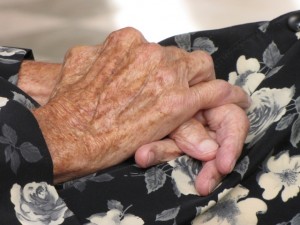 The Traditional Indian value system inculcates respect for elders. Elders are considered an intrinsic part of the family. Children turn to their elders for advice on every aspect of their life. This also results in senior citizens playing an important role in their families and society. In the current scenario, these values are fast eroding. The breaking up of traditional joint families into nuclear families has resulted not only in the separation of families but also in the severance of family ties. Many senior citizens no longer have the same role in their families as was traditionally played. While it is inevitable in the current scenario that the family unit will remain nuclear, this should not result in the breaking of ties and familial responsibilities. Efforts must be made to retain traditional values in this regard despite modernization of society.
The Traditional Indian value system inculcates respect for elders. Elders are considered an intrinsic part of the family. Children turn to their elders for advice on every aspect of their life. This also results in senior citizens playing an important role in their families and society. In the current scenario, these values are fast eroding. The breaking up of traditional joint families into nuclear families has resulted not only in the separation of families but also in the severance of family ties. Many senior citizens no longer have the same role in their families as was traditionally played. While it is inevitable in the current scenario that the family unit will remain nuclear, this should not result in the breaking of ties and familial responsibilities. Efforts must be made to retain traditional values in this regard despite modernization of society.
For human rights purposes, age is not a merely a numerical designation, but a social construct based on custom, practice and the perception of the role a person plays in his or her community. The specific vulnerabilities of older persons can be the result of physical and mental conditions, but can also result from the obstacles encountered due to societal perception and the interaction of an individual with his or her environment.
Population ageing constitutes one of the most significant demographic transformations of the twenty-first century. For the first time in history, humankind will reach a point at which there are fewer children than older persons in the world. Older persons are not a homogenous group, and the challenges they face in the protection or enjoyment of their human rights vary greatly. While some continue to lead active lives as part of their community, many others face homelessness, lack of adequate care or isolation.
Multiple discrimination appears as an essential component, particularly when considering that age-related discrimination if often compounded by other grounds of discrimination, such as sex, socio-economic status, ethnicity, or health status.
STATUS OF OLDER PERSONS IN INDIA
If Mark Twain lived in India and experienced the travails of senior citizens, he would have rephrased his words on a positive frame of mind. His quote, “Age is an issue of mind over matter. If you don’t mind, it doesn’t matter,” would have been revised as “Age does matter over mind, if you don’t mind you are in trouble” in India. The UN defines a country as ‘ageing’ where the proportion of people over 60 reaches seven percent. India has already exceeded this and is likely to reach 12.6 percent by 2025. India has the second largest aged population in the world. India is thus an ageing country. Science and technology has created a revolution in the healthcare system thus there is a decrease in mortality leading to a longer lifespan for individuals. The growing population of elderly has given birth to the problem of taking care and providing them security.
In fact, there is a sense of pity and anxiety the moment people retire from active service and are dismissed as old fossil in a maddening race for money, fame and name. Truly, none should grudge this thinking and people should also spare a thought for their elderly parents in the autumn of their lives.
Pension blues and post-retirement life are two dark and scary areas which any middle-class employee would find perplexing. Sadly, the plight is more pitiable in the private sector where there are no good advisers to guide you on a contented life. Health is one big uncertain zone where one’s calculations go haywire if a retired person falls sick. There is no national social security or health plan for all. The Central Government Health Scheme is one saving grace for retired employees, while the private sector has no such scheme. As American boxer George Foreman rightly said, the “question isn’t at what age I want to retire, it’s at what income.” How true. Income and savings are interlinked bogies and invariably there is a yawning gap between what you earn and save. Sadly, the state has no plans for senior citizens and it feels its responsibility is limited to caring for pensioners of the central government. Social security schemes are a big disappointment and one has to fend for oneself. The condition is deplorable in rural areas and interiors of the country. The unsung and destitute senior citizens lead a pathetic life.
In the Constitution of India, Chapter IV coming under the Directive Principles has taken up the concerns of the elderly. Nonetheless, these are not enforceable by the law. Also both the Central and State Governments are empowered under Entry 23 of List III (Concurrent List) to make provisions with regard to social security and social insurance.
In 1956, after Independence, the Hindu law made a statutory provision for the elderly. Maintenance of parents by their children (sons and daughters) is subsumed in section 20 of the Hindu Adoption and Maintenance Act of 1956. A similar clause for sons to look after their parents existed under the Muslim Law, too. However, here too it remained only a moral obligation. In 1973, for the first time, a provision was introduced in the code of criminal procedure. An elderly person could thus move court for his maintenance. It is, however, essential that the other party has sufficient means and has neglected or refused to maintain the parent who is unable to take care of himself. This law is secular and includes married daughters in addition to sons. However, the parent needs to approach the court against an offspring, and the onus was on the parent to prove that the other party has sufficient means and has refused to maintain him i.e., the parent. This is harsh and cumbersome as well. Even at the time of its inception, the Law Commission was not in favor of making such a provision. It remarked that, “The Criminal Procedure Code is not the proper place for such a provision. There will be considerable difficulty in the amount of maintenance awarded to parents amongst the children in a summary proceeding of this type. It is desirable to leave this matter for adjudication by the Civil Courts.”
Lately, The Senior Citizens (Maintenance, Care and Protection) Act, 2007 is intended as a social welfare legislation to enable senior citizens to obtain maintenance from their children so as to meet their basic requirements. Its object are to provide an effective mechanism for senior citizens to claim need-based maintenance from their children including foster children, adopted children, step-children, grandchildren and also from such relatives to whom they have provided financial support, to make provisions for maintenance to be provided or steps to be taken by the government for the benefit of such senior citizens, who do not have children, grandchildren or relatives from whom they can claim maintenance and to provide a proper mechanism for protection and care of senior citizens on the part of the government. Thus, the Act provides not only for maintenance of the elderly but also for the welfare measures like better medical facilities, protection of life and property and Old Age homes in every district.
SUGGESTIONS
There are several schemes for providing old age and survivors benefit to the people in India although their coverage is small. But there is very little awareness on the same. Moreover, benefits of the scheme rarely reach the aged if they are poor and illiterate, if they live in remote backward regions and if they belong to socially oppressed communities. The poor structures of communication, implementation and enforcement have worsened the problem of accessibility to these schemes and services. There are no associations working for the interests at the local level. The provisions of health insurance in India and the old age pension schemes for the elderly are inadequate leading to neglect of the elderly care.
Fund for the Maintenance of Senior Citizens
Over the years it has been noticed that a sense of financial and social insecurity is growing large with the older citizens. Hence, a fund should be created for providing maintenance and looking after the other needs of the senior citizens. The contributions made by individuals (family members of applicants) may be deposited in the said fund. There should also be some budget allocation by the Centre, State or both, towards the said fund. Individuals, families, communities and institutions of civil society have to join hands as partners. Efforts must be made to encourage contributions to this fund by corporations, societies, institutions as well as individual citizens, NRI’s with resources. Further, all contributions made to this fund may be given the benefit of Income Tax exemption. Funds must be dispersed to nationalized banks from the said fund, where it can be accessed by senior citizens, using the card provided to them.
Homes for Senior Citizens
The Central and State governments should be required to set up homes in every district with adequate facilities for men, women and couples. Such homes shall particularly be set up for senior citizens who are lonely and who do not have a home or any adequate shelter. Facilities should be provided to meet their nutritional, medical, recreational and spiritual facilities.
Protection of Senior Citizens
Senior Citizens have become soft targets for criminal elements. Police must be directed to keep a friendly vigil on elderly couples/single persons living alone and promote mechanisms of interaction with neighbourhood associations. Provisions should be made for mechanisms of protection of their lives and property. In every police chowki/Thana, a special cell must be provided for the protection of senior citizens. An area wise list of senior citizens must also be maintained.
Other Measures
Other measures for the welfare of senior citizens must also be taken. Awareness programmes relating to traditions of the country, importance of values, morals, ethics etc. should be organised frequently to educate the younger generation to respect and care their seniors. Prevention is always better than cure. It is high time for us to once again introspect and to give due recognition to the strength, inspiration, and experience of elderly citizen of the country. Steps may be taken to promote schemes such as the ‘adoption of senior citizens’ by persons or families having means as a welfare measure. Such a scheme would not only provide financial security to senior citizens, it would also create a sense of belonging.
CONCLUSION
Old Age is usually associated with declining faculties, both mental and physical, and a reduction in social commitments of any person. It is a social construct, rather than a biological stage. The basic human rights of older persons such as financial, security, healthcare and nutrition, shelter, education, welfare, protection of life and properly etc. must be protected. The problem is compounded by the fact that preparation for old age is an alien concept in most families. The Central and the State Governments have taken steps to provide care and support to the elderly. The NGOs are also helping in their limited way to with the task of taking care of the aged. But ultimately it is the family that can play the most crucial role in this respect. The Indian culture as well as expectations of the elderly persons accentuates the respectful treatment to be given to the aged persons in the family. It is therefore necessary that efforts must be made to strengthen the family support for taking care of the elderly population.
The need of the hour is to inculcate a sense of responsibility towards the needs and rights of elderly through the curriculum of school children. A re-look at all the policies for elderly is required urgently. As quoted by Pearl S. Buck, “Our society must make it right and possible for old people not to fear the young or be deserted by them, for the test of a civilization is the way that it cares for its helpless members.”

By: Miss Savina R. Crasto
Advocate, High Court
Partner of M/s Right & Rights
Visiting Faculty at Siddharth College of Law, Mumbai
Email: savicrasto@gmail.com




